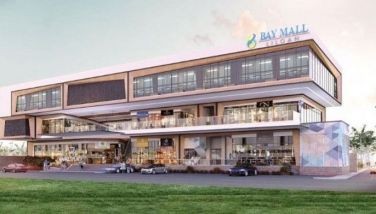Phl to boost demand for blue-collar jobs
CEBU, Philippines - The Philippine government, through the National Economic Development Authority (NEDA), plans to put extra effort on attracting more manufacturing investors to strengthen the demand for blue-collar jobs in the country.
"Our biggest mistake is not paying attention to manufacturing sector in the last three years,"said NEDA director general Arseño M. Balisacan during the recent economic briefing and investment forum in Cebu hosted by the Cebu Business Club (CBC).
Balisacan admitted that amid the good credit ratings of the Philippines, and rising Gross Domestic Product (GDP), poverty is still not properly addressed because of the imbalance of the economic opportunity distribution.
Last year, the the country's GDP posted at 7.2 percent and it is targetted to reach within the level of seven to 10 percent in the next two years.
"We are a developed country in terms of structure, but poor in terms of people [standard of living]," the secretary for socio-economic planning said.
While the Philippines had been successful in providing job opportunities for white-collar jobs via the upbeat services sector, it was not able to strenghten the manufacturing side, in fact it lost its attractiveness to multi-national manufacturing companies over the past few years due to "sweetheart" deals offered by other neighboring countries including China.
"The revival of manufacturing is vital," said Balisacan adding that the government is now updating the Philippines Economic Development Program (PEDP) to priortize six blue-collar generating infustries suchs as agri-business, manufacturing, tourism, construction, logistics, as well as Information Technology (IT).
The revival of attracting manufacturing investments to the Philippines is deemed crucial in order to balance the economic expansion, enabling the poor to participate the growth process, he said.
Meanwhile, the Philippine Economic Zone Authority (PEZA) recently announced that it is strongly pushing for more investments in shipbuilding and car parts manufacturing in the country which is seen to help create more jobs for the Filipinos.
Most of the investments coming in the economic zones are on electronics and semi-conductors which generate employment especially to those who did not finish a college degree, Peza Director-General Lilia de Lima said in an interview last week.
"We are pushing more, however, from the shipbuilding and car parts sector because we have the capacity here with many skilled Filipinos,†she said.
In Cebu, Tsuneishi Heavy Industries located in Balamban has built many ships and has shown that they are capable of producing high quality ships that companies around the world use in their operations.
Every year, according to De Lima, there are at least a million Filipinos who reach working age thus underscoring the need to create more job opportunities to cater to this number. About half of these are college graduates which are already well taken care of by the outsourcing sector employing them for IT (information technology) and other voice and non-voice processes.
Asian Development Bank (ADB-Philippines) senior country economist Norio Usui earlier called the philippine government to pump prime the job creation further.
"Now is the time for the Philippines to translate economic growth benefits down to the ordinary people if the country wants to take the right road to inclusive growth," said Usui.
Usui encouraged the Philippine government administration to establish a clear linkage between economic growth and poverty reduction by creating more job opportunities for many Filipinos, leveraging on the country's dynamic growth.
Usui recommends for the Philippines to "walk on two legs," which means that apart from developing the service sector, government must also take focus on traditional growth engines like manufacturing, to pave the way for a higher, sustained, and more inclusive growth.
According to Usui, the problem here is that growth has depended more on services, mainly on the business process outsourcing (BPO).
"Create job opportunities not just to the specific educated people but for a wider range where manufacturing industries could come in,†he stressed.
"What the Philippines needs to do is to facilitate diversification in the manufacturing sector. It is diversification not specialization,†he said, which means that the country does not have to veer away from the kind of products it is already manufacturing and exporting. (FREEMAN)
- Latest



















